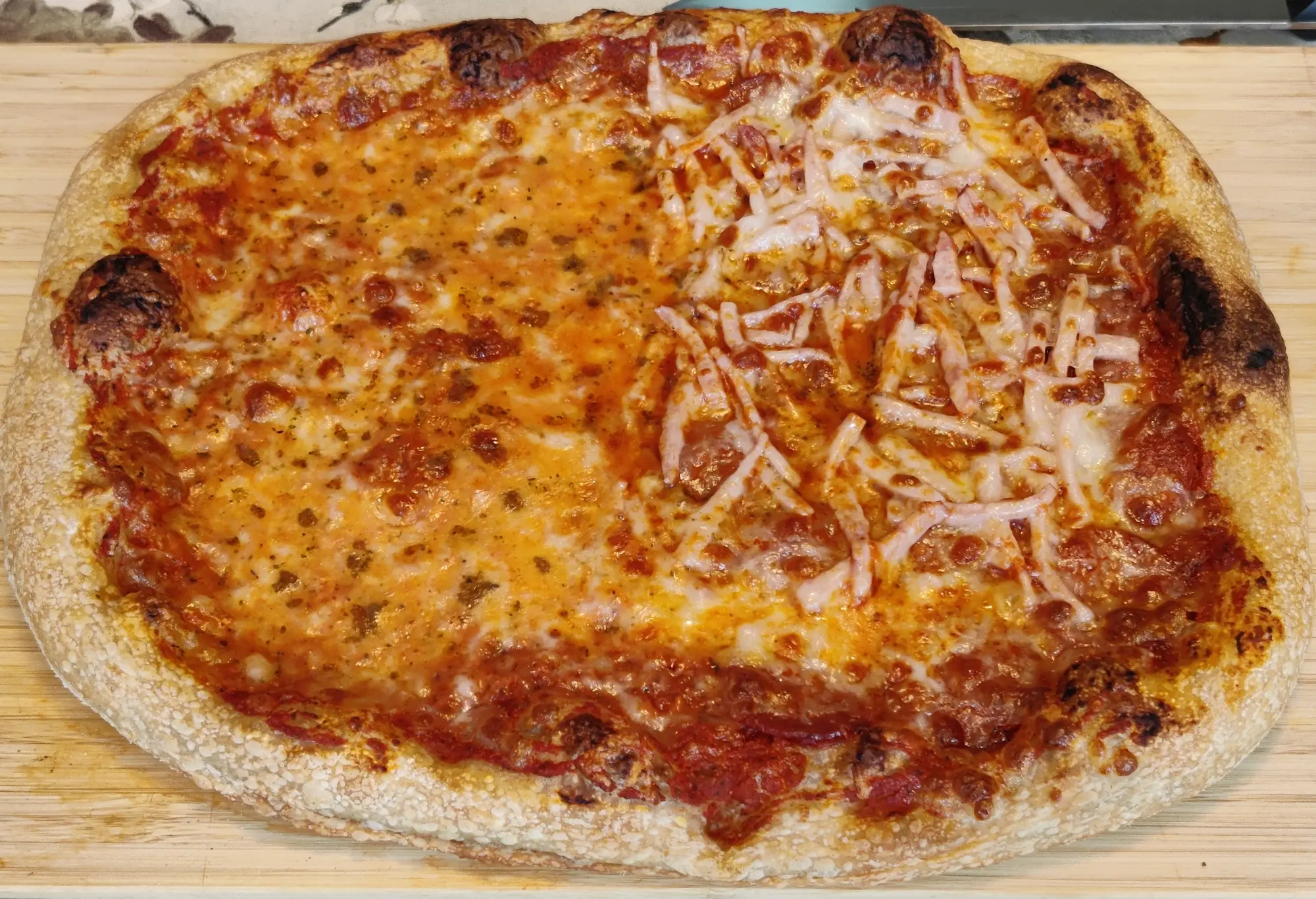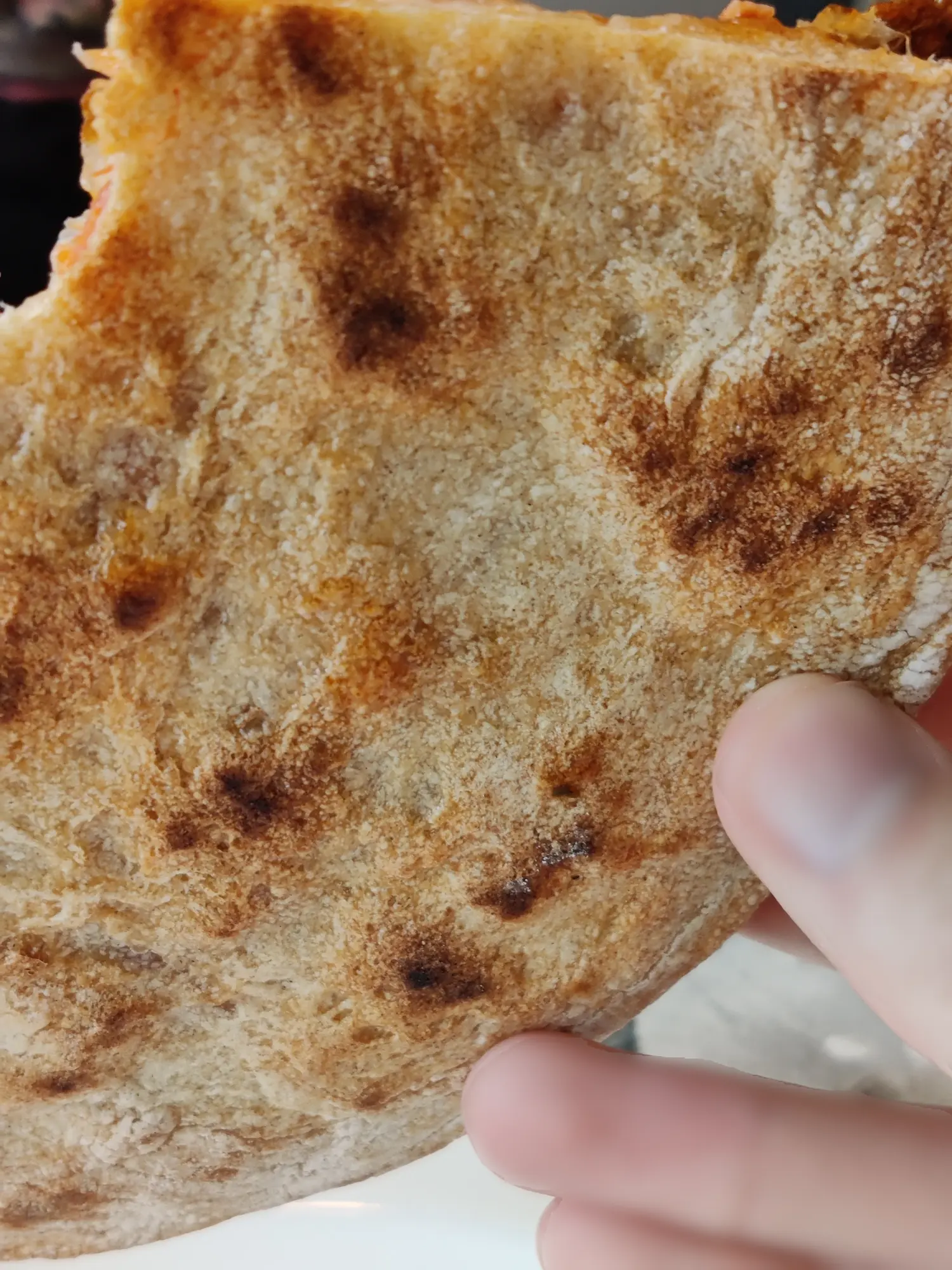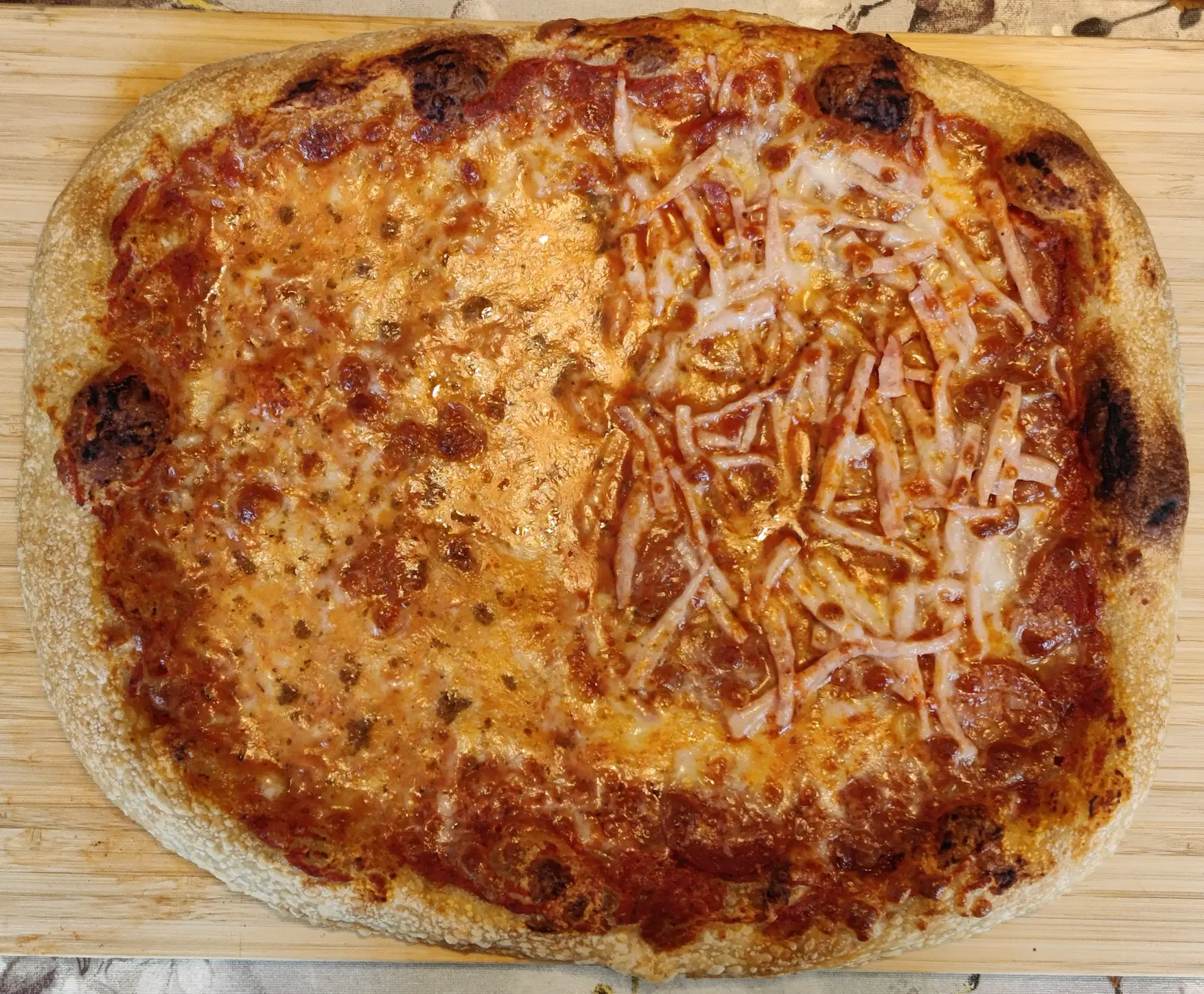this post was submitted on 05 Jul 2024
18 points (84.6% liked)
Pizza
1150 readers
1 users here now
Friendly community for pizza lovers and creators of all levels. Share your creations, recipes or questions!
Logo by catalyststuff on Freepik (https://www.freepik.com/free-vector/flying-slice-pizza-cartoon-vector-illustration-fast-food-concept-isolated-vector-flat-cartoon-style_10336107.htm)
founded 2 years ago
MODERATORS
you are viewing a single comment's thread
view the rest of the comments
view the rest of the comments



Just got a baking steel and tried it out for the first time last night. We got it looking to replace the stone in our qstove (https://qstoves.com/products/easter-special-16-inch-auto-rotating-qubestove-pizza-oven), because in-spite of the oven being frankly, the best consumer grade pizza oven I think we can get our hands on, we still are ending up with under cooked bottoms in the center of the pizza. This will however, require me to drill some holes in my pizza steel to get it to mount to the rotating wheel, which I'm, not hesitant, but I wanted to play with it a bit before fundamentally altering it.
We really want to be able to make pizza restaurant quality 16 inch pizzas using this oven, but even with an oven that can get up to 800 degrees f, that's been a challenge, we think primarily, because of the stone. It just cant transmit enough heat in the time that the top of the pizza takes to get fully cooked. This is less of an issue in a home oven, where the air temps are just far lower.
Our first run with with a recipe that uses the King Arthur high gluten flour, which is 14%, and no additional additives, at about 63% total hydration. Other ingredients are sea salt, yeast, water, olive oil. We get excellent bubble formation and an overall great, flavorful crust with this recipe, which is allowed to sit for 3 days in the fridge after its final rise. I don't know of any restaurants using baking enzymes or powdered sourdough, but I could see how these would maybe help short cut some things. We're a bit purist however when it comes to our recipe, so we really want to stay as traditional at least in terms of ingredients as possible.
How many grams are your dough balls? We've experimented with everything from 200-500 grams for pizzas ranging from 12 inches to 16. Last night we did 200 gram 12 inch pizzas, which imo is too little dough, but I was very impressed that the steel was still able to get a firm, crisp bottom crust with that. Honestly, I think the steel is going to be game changing. I'm going to do a 800 gram batch for two 400 gram dough balls here in a few minutes to see how well the steel can handle a 16 inch pizza (for tonight/ tomorrow night).
They were 325 grams roughly. But some of the ones I made had trouble stretching without tearing and it was honestly almost too thin in places. I think around 400 or little less is ideal.